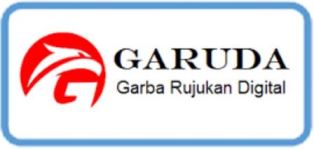Analisis Evaluasi dalam Pendidikan Vokasi serta Dampaknya pada Program Pendidikan Ditinjau Berdasarkan Persepsi Publikasi Ilmiah Berbasis Meta-Analysis
 ), Ambiyar Ambiyar(2), Ermita Ermita(3), Rezkiyana Hikmah(4),
), Ambiyar Ambiyar(2), Ermita Ermita(3), Rezkiyana Hikmah(4), (1) Universitas Negeri Padang
(2) Universitas Negeri Padang
(3) Universitas Negeri Padang
(4) Universitas Indraprasta PGRI
 Corresponding Author
Corresponding Author
DOI : https://doi.org/10.24036/voteteknika.v12i2.128802
Full Text:
 Language : id
Language : id
Abstract
Evaluasi pendidikan vokasi memainkan peran penting dalam mengukur efektivitas dan relevansi program-program pendidikan vokasi di Indonesia. Dalam konteks ini, penulis melakukan analisis metadata terhadap berbagai studi yang telah dilakukan dalam bidang ini. Melalui penggunaan metode analisis metadata, penulis menyelidiki metode evaluasi yang digunakan, dampak evaluasi terhadap program-program pendidikan vokasi, dan representativitas data yang dihasilkan. Hasil analisis menunjukkan bahwa evaluasi pendidikan vokasi memiliki dampak yang signifikan terhadap program-program pendidikan vokasi, dengan nilai koefisien yang menunjukkan dampak yang tinggi. Temuan ini didukung oleh nilai p yang mendukung hipotesis yang diajukan. Selain itu, grafik funnel plot menunjukkan bahwa metadata yang penulis analisis mewakili sampel dari publikasi dengan baik. Kesimpulannya, evaluasi pendidikan vokasi berperan penting dalam meningkatkan kualitas dan relevansi program-program pendidikan vokasi. Temuan ini memberikan dasar yang kuat untuk pengembangan kebijakan dan praktik pendidikan vokasi yang lebih efektif di Indonesia, serta menegaskan pentingnya evaluasi yang terus-menerus dalam memastikan kualitas pendidikan vokasi yang responsif terhadap kebutuhan pasar kerja yang terus berkembang.
Kata kunci : Evaluasi Pendidikan Vokasi, Dampak Evaluasi, Evaluasi Program Vokasi, Meta-Analysis.
Vocational education evaluation plays an important role in measuring the effectiveness and relevance of vocational education programs in Indonesia. In this context, we conducted a meta-analysis of the various studies that have been conducted in this field. Through the use of meta-analysis methods, we investigate the evaluation methods used, the impact of evaluation on vocational education programs, and the representativeness of the data produced. The results of the analysis show that vocational education evaluation has a significant impact on vocational education programs, with coefficient values showing a high impact. This finding is supported by the p value which supports the proposed hypothesis. Additionally, the funnel plot graph shows that the metadata we analyzed represents a sample of publications well. In conclusion, vocational education evaluation plays an important role in improving the quality and relevance of vocational education programs. These findings provide a strong basis for the development of more effective vocational education policies and practices in Indonesia, and emphasize the importance of ongoing evaluation in ensuring the quality of vocational education is responsive to the needs of the ever-evolving labor market.
Keywords: Vocational Education Evaluation, Impact Evaluation, Vocational Program Evaluation, Meta-Analysis.
References
A. P. Dini, I. A. Zahroh, A. Info, H. Visit, dan P. Karakter, “EVALUASI PROGRAM HOME VISIT SEBAGAI PENGUAT,” vol. 17, no. 1, hal. 270–275, 2023, doi: 10.30595/jkp.v17i1.16333.
R. D. Sanjaya, I. Prasetyo, dan A. Rossydi, “Evaluasi Program Pembelajaran on the Job Training di Lembaga Pendidikan Vokasi Evaluation of On-The-Job-Training Program in Vocational Higher Education,” vol. 5, no. 2, hal. 29–37, 2022.
A. Munandar, S. Nurholizah, D. T. Artika, dan S. Mahroja, “Evaluasi Program Pendidikan : Tinjauan Terhadap Efektivitas dan Tantangan,” vol. 9, no. 2, hal. 128–136, 2023.
M. Kris et al., “Pendampingan Belajar Desain Grafis bagi Generasi Z melalui Aplikasi Corel Draw di Desa Bandarkedungmulyo,” Jumat Inform. J. Pengabdi. Masy., vol. 2, no. 1, hal. 7–10, 2021, [Daring]. Tersedia pada: https://ejournal.unwaha.ac.id/index.php/abdimas_if/article/view/1167
L. Suryati dan A. Yulastri, “Penerapan Program Teaching Factory dalam Mempersiapkan Kompetensi Kewirausahan Siswa pada Pendidikan Vokasi,” vol. 7, no. 1, hal. 58–66, 2023.
Suharno, N. A. Pambudi, dan B. Harjanto, “Vocational education in Indonesia: History, development, opportunities, and challenges,” Child. Youth Serv. Rev., vol. 115, no. May, hal. 105092, 2020, doi: 10.1016/j.childyouth.2020.105092.
R. Widiasih, R. D. Susanti, C. Windani, M. Sari, dan S. Hendrawati, “MENYUSUN PROTOKOL PENELITIAN DENGAN PENDEKATAN SETPRO : SCOPING REVIEW,” vol. 3, no. 3, hal. 171–180.
N. Yolanda dan F. Rizal, “Website Based E-Module Development on Computer System Vocational High School 1 Painan,” J. Teknol. Inf. dan Pendidik., vol. 14, no. 1, hal. 40–46, 2021, doi: 10.24036/tip.v14i1.417.
F. Bartoš, M. Maier, D. S. Quintana, dan E. Wagenmakers, “Adjusting for Publication Bias in JASP and R : Selection Models , PET-PEESE , and Robust Bayesian Meta-Analysis,” vol. 5, no. 3, 2022, doi: 10.1177/25152459221109259.
B. Kumalasari dan L. Idawati, “Evaluasi program pendidikan karakter di SD Athalia dengan model CIPP,” vol. 11, no. 2, hal. 1–5, 2023.
K. Susiani, I. W. Suastra, dan I. B. P. Arnyana, “Study of improving the quality of learning in an effort to improve the quality of elementary school education,” J. Educ. J. Pendidik. Indones., vol. 8, no. 1, hal. 37, 2022, doi: 10.29210/1202221786.
Y. Wahyudin, D. Lesmana, F. S. Mumpuni, dan E. R. Farastuti, “EDUKATIF : JURNAL ILMU PENDIDIKAN Evaluasi Dampak Program Merdeka Belajar Kampus Merdeka ( MBKM ) pada Bidang Studi Akuakultur,” vol. 4, no. 1, hal. 1551–1564, 2022.
Z. Zhai, J. F. Martínez, V. Beltran, dan N. L. Martínez, “Decision support systems for agriculture 4 . 0 : Survey and challenges,” Comput. Electron. Agric., vol. 170, no. January, hal. 105256, 2020, doi: 10.1016/j.compag.2020.105256.
A. Meoli, R. Fini, M. Sobrero, dan J. Wiklund, “How Entrepreneurial Intentions Influence Entrepreneurial Career Choices: The Moderating Influence of Social Context,” J. Bus. Ventur., vol. 35, no. 3, 2020, doi: 10.1016/j.jbusvent.2019.105982.
C. Fajar Budi Hartanto, Rusdarti, dan Abdurrahman, “Tantangan Pendidikan Vokasi di Era Revolusi Industri 4.0 dalam Menyiapkan Sumber Daya Manusia yang Unggul,” Pros. Semin. Nas. Pascasarj. UNNES, hal. 163–171, 2019.
A. Qolik, A. Suyetno, R. Nurmalasasi, dan B. C. Tjiptady, “Evaluasi CIPP Teaching Factory untuk Pengembangan dan Penjaminan Mutu Peserta Didik,” vol. 4, hal. 91–96, 2021.
D. Kreisman dan K. Stange, “Vocational and career tech education in american high schools: The value of depth over breadth,” Educ. Financ. Policy, vol. 15, no. 1, hal. 11–44, 2020, doi: 10.1162/edfp_a_00266.
L. Cheng, A. D. Ritzhaupt, dan P. Antonenko, Effects of the flipped classroom instructional strategy on students’ learning outcomes: a meta-analysis, vol. 67, no. 4. Springer US, 2019. doi: 10.1007/s11423-018-9633-7.
A. R. Rukmana, A. Rahmawati, J. S. Murni, dan V. H. Adzani, “Evaluasi Program Bantuan Pelaksanaan Teaching Factory di SMK Jakarta Pusat 1,” vol. 07, no. 03, hal. 959–966, 2021.
B. Fernández-castilla, L. Declercq, L. Jamshidi, dan S. Natasha, “Visual Representations of Meta-Analyses of Multiple Outcomes : Extensions to Forest Plots , Funnel Plots , and Caterpillar Plots,” 2020.
 Article Metrics
Article Metrics
 Abstract Views : 434 times
Abstract Views : 434 times
 PDF (Bahasa Indonesia) Downloaded : 72 times
PDF (Bahasa Indonesia) Downloaded : 72 times
Refbacks
- There are currently no refbacks.

This work is licensed under a Creative Commons Attribution-ShareAlike 4.0 International License.



.png)


.jpg)




